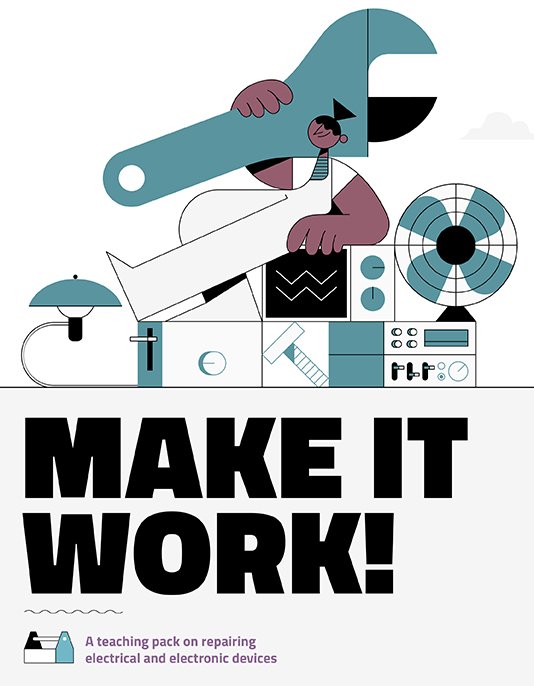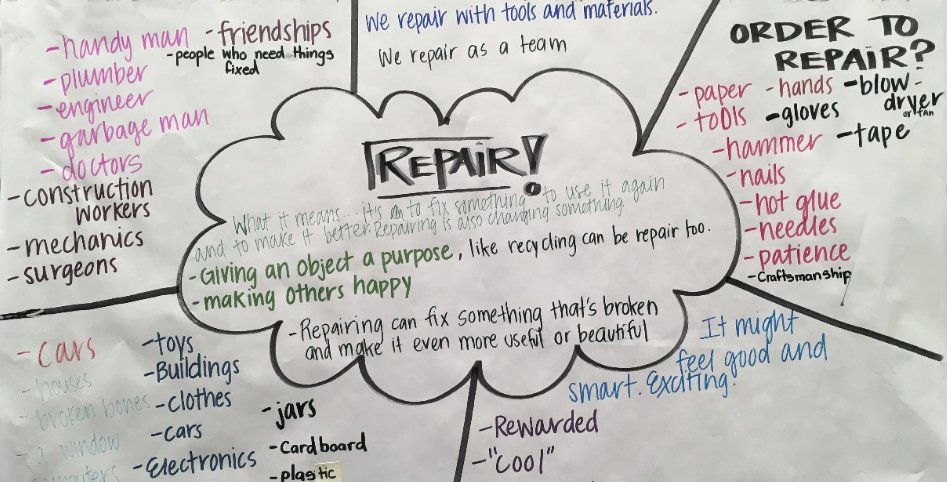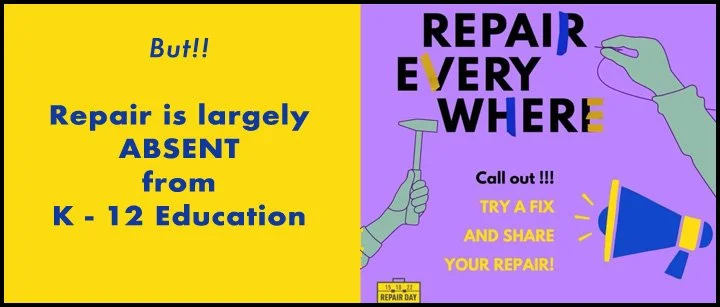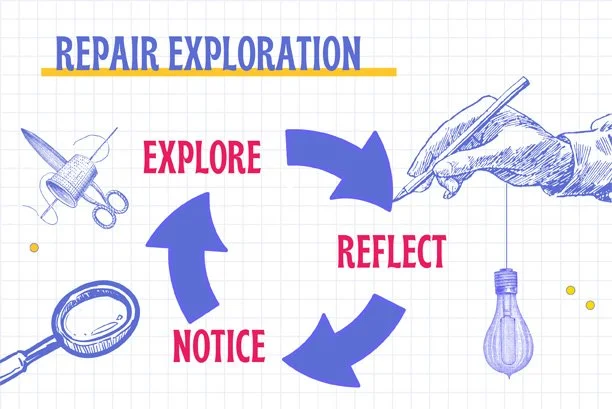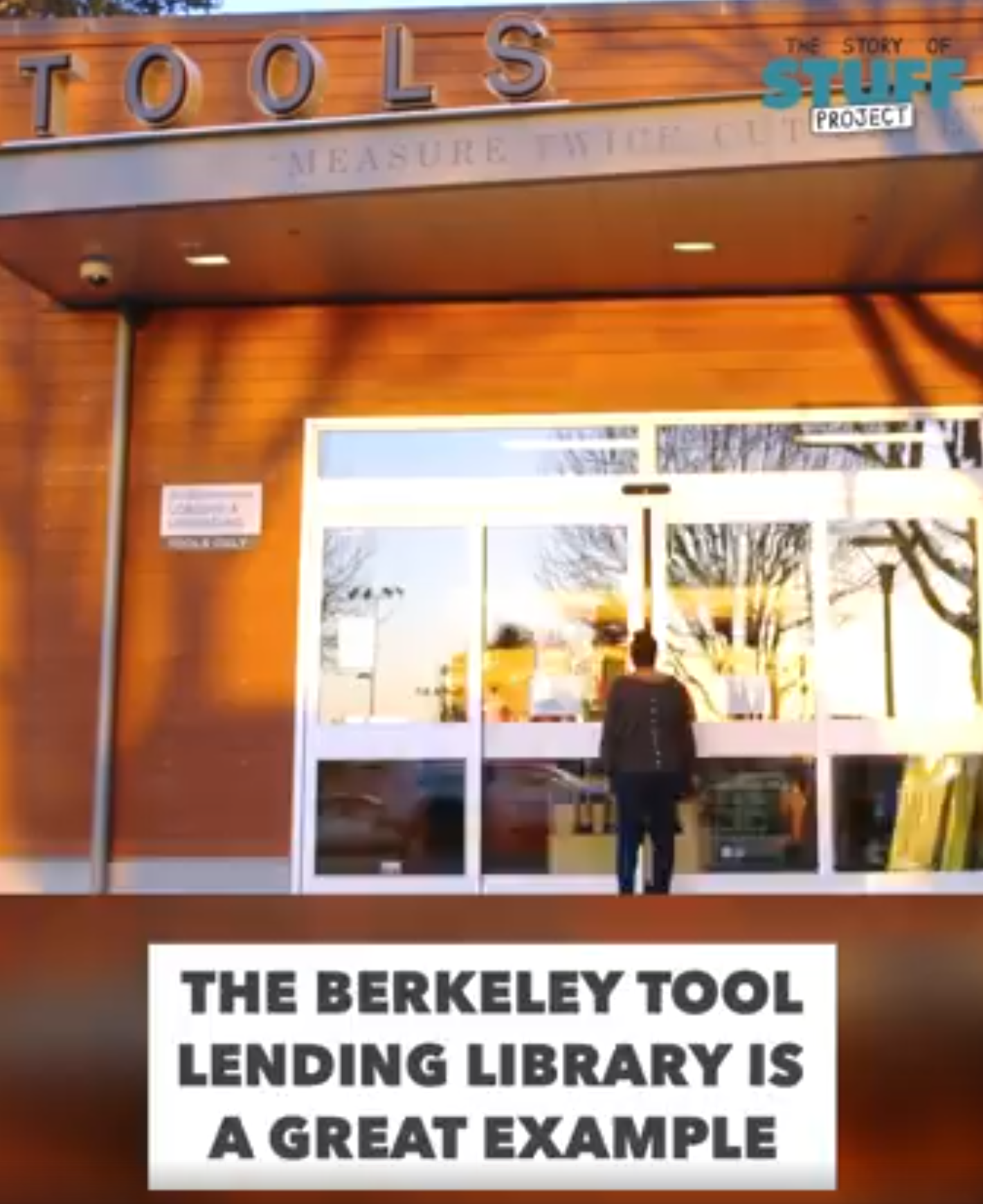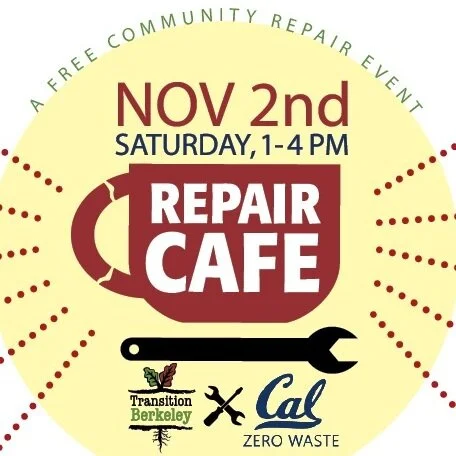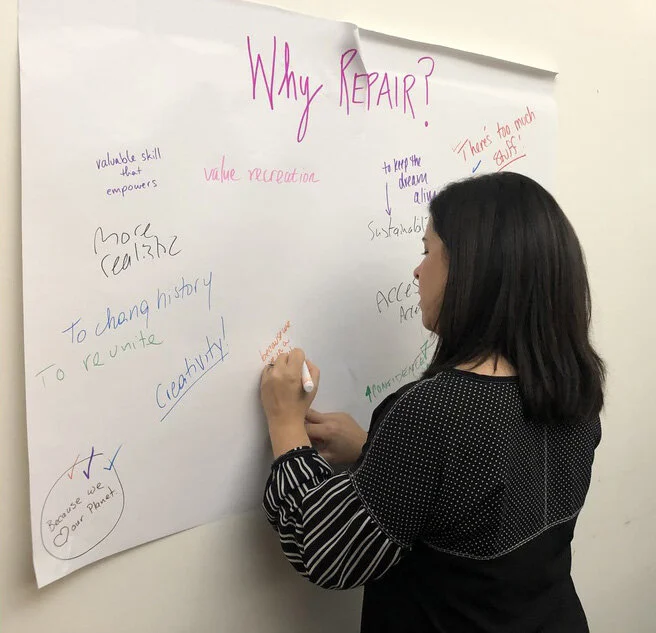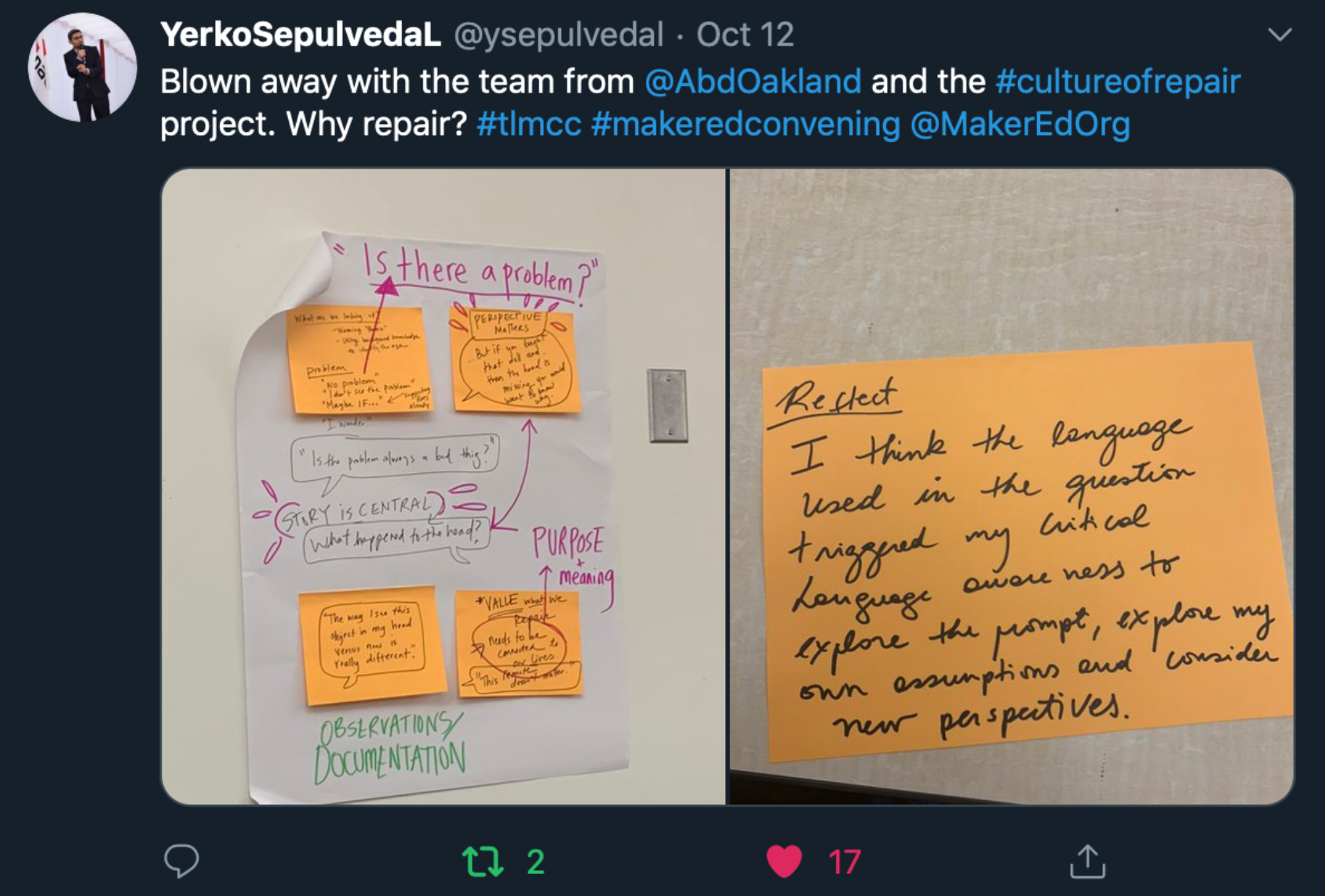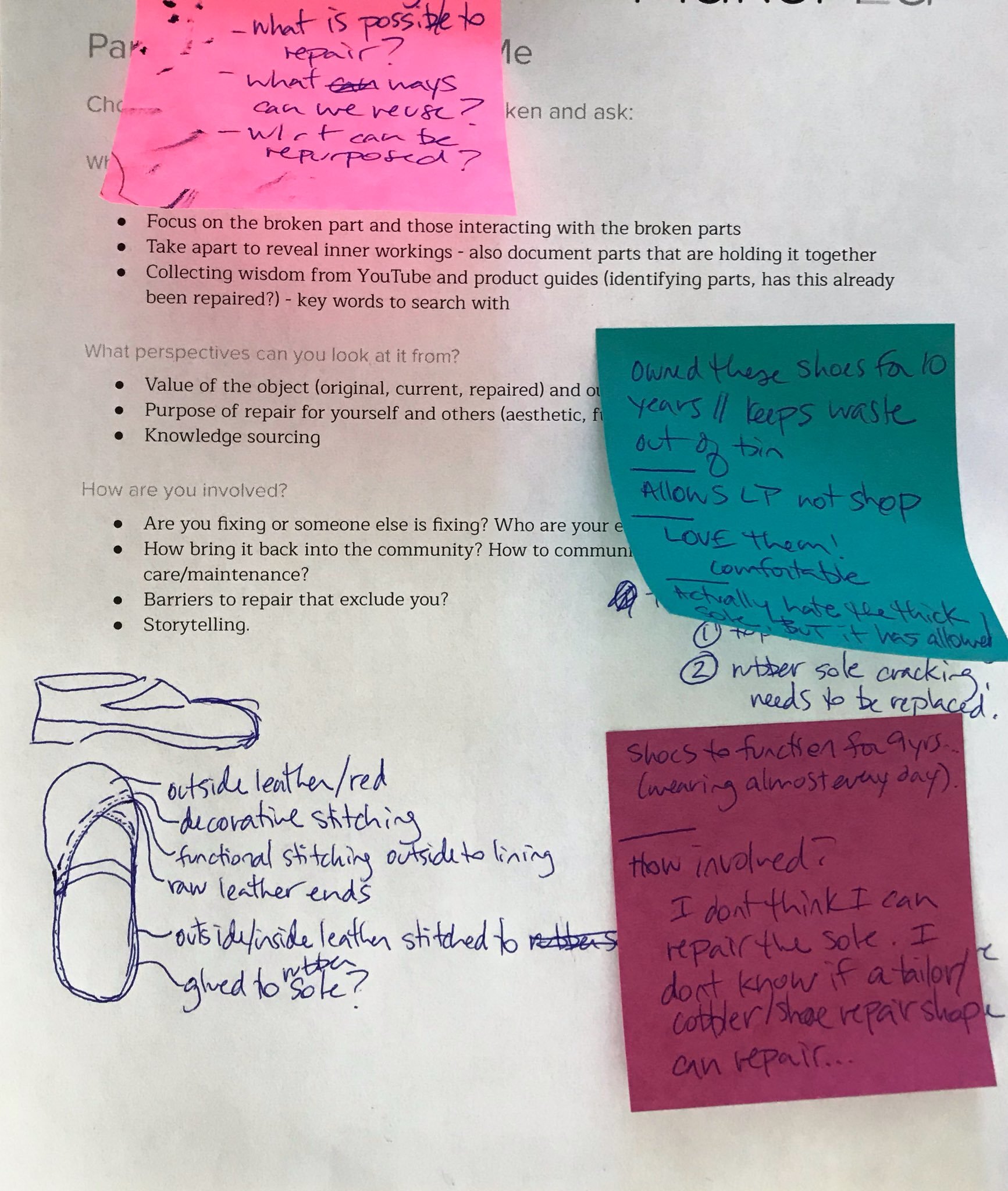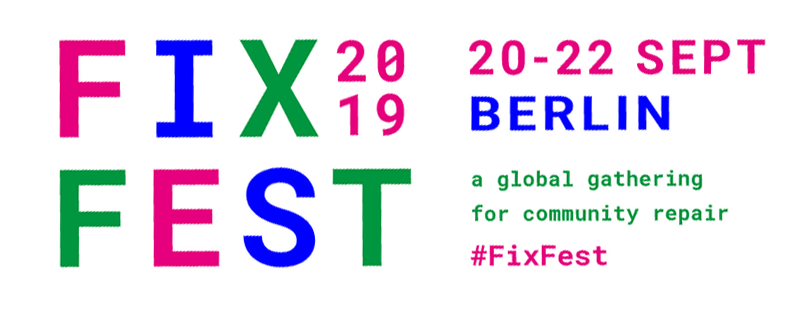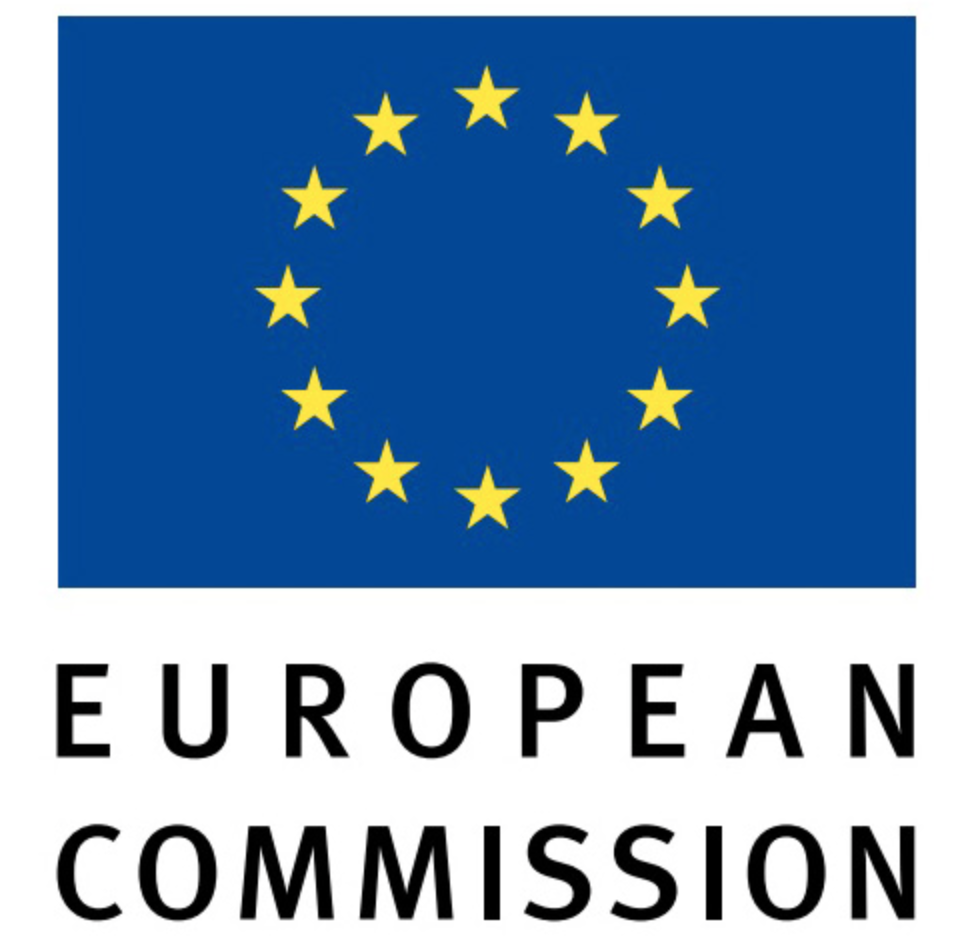New Grant Cycle this January!
Fixing ~ Tending ~ Mending
An Ethos Grounded in Care
It's winter and it's dark and it’s cold.
But this newsletter's being written on New Year's Day, in the afterglow of friends, families and communities marking the reemergence of life-giving light.
It IS possible to repair what's broken, and when we choose to repair, we shift our culture's values and capacities toward ones grounded in care.
The time has never been so ripe to teach repair, and to integrate the mindset, technologies, thinking skills, systems understandings, and value of caring, into core K - 12 subject areas.
INTRODUCING THE FALL 2023 GRANTEES!
This fall The Culture of Repair Project awarded grants to five terrific organizations that put forward exciting proposals to develop, advance, and document teaching repair in educational settings.
“ReGenerational Repair Certificate Seed Program”
The Repair Shop is collaborating with the High School of Fashion Industries in New York City to develop a multi-generational after-school program. Fashion-focused high school students will work with fashion industry experts and Garment District workers to learn vanishing couture repair and alteration skills. The project also serves as research for extending HSFI's sustainability program into a Repair Certificate. The initiative includes developing a training and toolkit for designing and facilitating accessible hands-on repair workshops.
“Radical Mending at The WasteShed”
The WasteShed will develop a youth-and-child centered version of their successful Radical Mending adult program, which teaches textile repair skills and garment-based problem-solving on Chicago's West Side. The project includes developing and publishing a Curriculum Guide for incorporating Radical Mending into the classroom.
“Stitching Stuffed Animals”
WNC Repair Cafe, in alliance with Triangle Repair Café, will develop a program to teach about sustainability and the environment to 2nd-4th graders through mending. The intention is to make abstract environmental issues concrete to young students by connecting them with hands-on repair of something that matters to them.
The Weaverville NC project involves a series of workshops in which sewing specialists will guide young children through mending their own stuffed animals. The objective is to create a successful program that can be easily replicated, using the materials the project develops and publishes.
“Riot Refurb”
This high school program will train students in repairing and repurposing computers for distribution in its under-resourced South Portland (Maine) community. Riot Refurb will publish a Toolkit online, along with curriculum resources to support other educators in establishing like programs.
"Computer Club"
Alfond Youth & Community Center will expand its program for 3rd to 7th grade students in Waterville, Maine. The class teaches upcycling used computers, and learning about repair, self-sufficiency and environmental sustainability. Once repaired, computers will belong to the youth and their families in this under-resourced community. The initiative will create, document and publish a replicable model. As a combined YMCA and Boys and Girls Club, there's terrific promise for broad distribution across its network.
Spring 2023 Grantees
"Cascade Repairs"
Expanding its robust relationship with the local school district, Waste Loop is working with teachers to develop a pilot after-school repair program in Leavenworth, a small, demographically diverse community in rural Washington.
"Spreading Repair Culture"
Repair PDX is collaborating with Environmental Promoters and their local, urban high school in developing an after-school program with a culturally inclusive curriculum.
Environmental Promoters is a community organization committed to repair, recycling and waste prevention in Portland, Oregon. Once completed, materials will be posted online for others to use in similar settings.
"Repair: Bring a Second Life to Objects"
We supported presenters' travel expenses for a fall workshop that explored repair as a part of the 6Rs — Rethink, Refuse, Reduce, Reuse, Repair, Recycle. Based on the Cultivating a Repair Mindset Toolkit, the workshop was offered at FabLearn 2023.
Columbia University hosted FabLearn Conferences bring together key influencers and thought-leaders from around the world in education, policy-making, academia, design, research, and maker communities to learn, present, and discuss digital fabrication in education, the maker culture, hands-on learning, and instructional tools.
ANNOUNCING THE SPRING 2024 GRANT CYCLE!
There’s only upside in bringing repair into K-12 educational settings, whether it be integrated into curricula across disciplines, a repair-centric after-school program, a component of a sustainability program, or something else. The opportunities for students learning through repairing physical objects are bountiful:
Cognitive development, creative thinking, analytical and practical skills and more
Physics, ecology, economics, government, ethics, and more
Collaboration, agency, citizenship, and more
The times call for paying attention, seeing and leaning into the possibility and promise of repair, and supporting youth in learning how to take care of our world. That's why we’re excited to announce:
The grants program provides resources to K-12 educators and repair advocates who are teaching the undergirding of a culture of repair. Standard grant amounts range from $1000 to $5000. Exceptional projects will be considered for up to $10,000. Total funding for the Spring 2024 grant cycle is expected to be $30,000.
Applications will be accepted January 15 - February 15; notifications are planned for the beginning of April with funding released in June.
Important note: To be eligible for funding, grantees must be registered with the United States Internal Revenue Service as a 501(c)(3), or be fiscally sponsored by a 501(c)(3).
Visit our Grants page to learn more
The Culture of Repair Project collects and collates links to educational resources from around the world. Materials range from fully-developed programs to resources designed to support teaching about repair, such as toolkits, lesson plans, videos, maps, schematics, etc.
Resources are ever-increasing.
Please contact us if you know about something that should be added!
a Special Offering from our Friends at Craftsmanship Magazine
Be sure and check out the The Art of Repair, the Fall issue of Craftsmanship, a multi-media digital magazine dedicated to reclaiming craftsmanship’s principles of excellence, beauty, and durability as a pathway to a more sustainable world.
"In a culture addicted to novelty and fast profits, the humble art of repair has declined almost to the point of extinction. But it’s not too late: In this issue, we delve into the history of planned obsolescence, and the reemerging ethos of restoration. From the patient hands of watchmakers, piano restoration experts, and veteran appliance repairmen to the story of a young French woman who got her country to ban planned obsolescence, we’ll explore what it really means to create, maintain—and truly value—a world built to last."
Check out other resources on our website.
And please send us suggestions for additions!
Practical and Technical Resources
We look forward to hearing about exciting repair programs, materials, and plans.
If it's broke, FIX IT!
Vita
